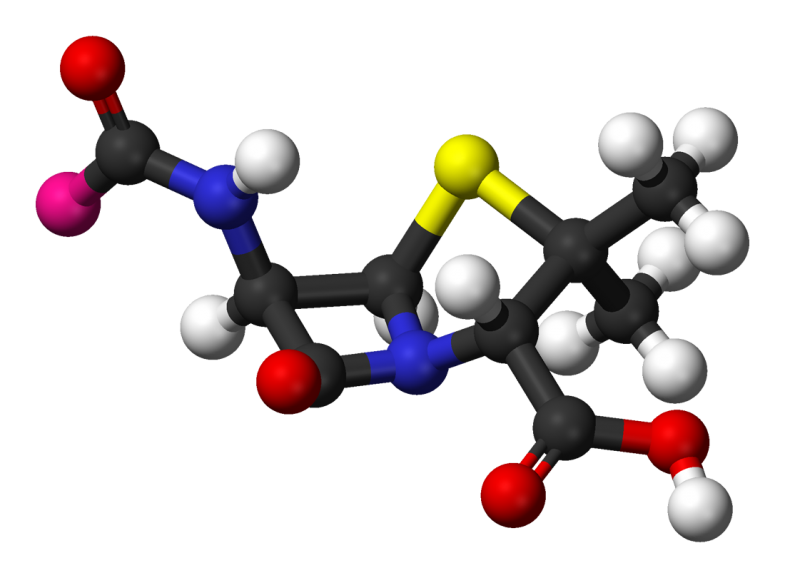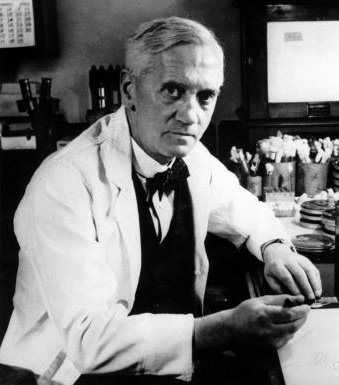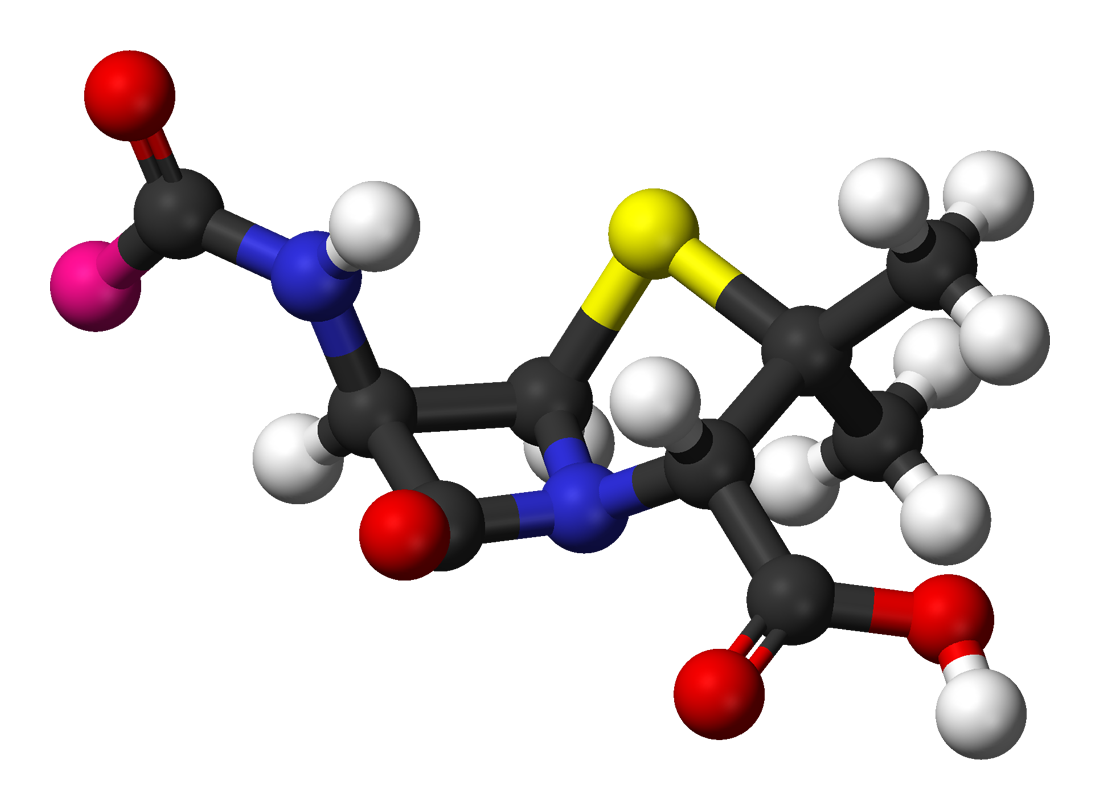An antibiotic is an organism-produced chemical that inhibits or slows down the growth of microbes particularly bacteria. And the ability of microbes to cancel the effect of antibiotics gives birth to antibiotic resistance.
 “In such a case the thoughtless person playing with penicillin treatment is morally responsible for the death of the man who finally succumbs to infection with the penicillin-resistant organism. I hope the evil can be averted.”
“In such a case the thoughtless person playing with penicillin treatment is morally responsible for the death of the man who finally succumbs to infection with the penicillin-resistant organism. I hope the evil can be averted.”
 1945 NY Times: Sir Alexander Fleming, Nobel Laureate for discovery of Penicillin.
1945 NY Times: Sir Alexander Fleming, Nobel Laureate for discovery of Penicillin.
Microorganisms have been living together for millions of years. They often have to compete with each other due to limited supply of resources. Microbes produce lethal molecules and use these as chemical weapons to kill other microbes. In this way they ensure their own survival. On the other hand, the targeted microbes try to cancel the effect of the chemical. They try to synthesize enzymes that can break down the chemicals. When they succeed cracking the poisonous chemical, they become resistant to it. Now, the molecules have no effect on them. They can grow and survive in the presence of chemicals that were previously harmful for them. For example, when Penicillium fungi compete with the bacterium Neisseria meningitides. Fungi produce Penicillin to kill the bacteria. Penicillin is called “antibiotic”. When a human gets infected by Neisseria meningitides and causes meningitis. The man can be given the penicillin. Penicillin will kill the bacterium and will cure the human without even hurting the human. On the other hand, bacteria try to produce an enzyme that can break the penicillin down. And bacteria succeed to produce an enzyme B-lactamase that stops the activity of penicillin. Humans took advantage of the antibiotics and used to cure the infections caused by microbes.
In the pre-antibiotic era, common diseases could be the cause of death. The death rate due to minor infection was high. With the discovery of antibiotics, these minor infections and diseases were curable. The life period of humans was extensively increased. That was the “golden era of antibiotics”. Antibiotics have cured more diseases than all the other drug classes combine. Now the resistance against antibiotics has been developed and we are ultimately leading to the “post antibiotic era”.
Antibiotic resistance is an inevitable biological process. It is an evolutionary process. Whenever any bacterium counters any antibiotic it tends to crack the code of that antibiotic. The bacterium succeeds in cracking the code either by mutation or by adapting the suitable environment. Once the resistance is inherited, there is no knowing where it will spread. The antibiotic resistance spreads through conjugation, transduction and transformation. The rate of spread of antibiotic resistance is very fast. The reason is that a bacterium divides into two in 20 minutes. So, the next generation of bacterium is ready in the next 20 minutes.
Antibiotic resistance is no longer a future prediction. It is happening right now all across the world. We are heading towards a post-antibiotic world where the modern medicine will end and minor infections can be the cause of death. We are responsible for accelerating the antibiotic resistance. Our overuse is the main cause of present antibiotic resistance. The more we use antibiotics, the more resistance there is. Penicillin was discovered in 1943. It was common and was sold over the counter. The result was that resistance against penicillin was identified in 1945, just two years after the discovery of penicillin. In US, about 50 % of the antibiotics given in hospitals are unnecessary. About 45 % of the prescriptions are given for conditions for which those antibiotics do not work. When we use an antibiotic against which a bacterium has developed resistance, then it kills the susceptible ones and allows the resistant ones to expand their generation at a rapid rate.
Antibiotics are being used in the Agriculture without any check. These are not used to treat infections instead these are used to accelerate the growth and development of plants and animals, allowing them to reach the market size sooner. In Asia, aquaculture depends upon antibiotics. Fruit growing relies on antibiotics to protect the fruits from diseases There are significant problems because the resistant strains that have emerged in the farms have made their ways into human populations. A recent report from the European Medicines Agency showed that approximately 45% of the antibiotics used in the UK are used in the livestock. In US, about 80% antibiotics sold go to livestock.
Antibiotic resistance is developing at a faster rate than the identification and development of new antibiotics. The development of new antibiotics is not easy and simple. It is an expensive, laborious, and time-consuming process. Most of the pharmaceutical companies have left the area of antibiotic development. The reason is that the antibiotic is a short term drug. The patient uses it once in his life and he does not need it anymore because the antibodies produced in his body will protect him. Then why to spend all the drug resources on developing a short term drug when maybe we could focus on long term drugs like hypertension and diabetes. The other reason is the resistance itself. The potential of resistance evolving in the pathogen is a major threat to the antibiotics. It is just possible that a drug that is so promising at present, it may not work so well a few years later. And the profit will go down. The discovery of new antibiotics is essential in order to avert the post-antibiotic era. We should encourage microbiologists to work on antibiotics and should convince pharmaceutical companies into making antibiotics once again. We should provide financial aids, discovery grants and rewards to the microbiologists and pharmaceutical companies as an appreciation.
Antibiotics play a role of shield against diseases to the modern life. Loss of antibiotics will feed loss of modern life. If we lost antibiotics, we would lose our shield for the people with weakened immune system like TB patients and newly born babies etc. We would lose surgical treatments. We need antibiotics to carry out the surgical operations. Antibiotics are necessary to avoid any kind of infections after the surgery. By losing antibiotics, we would lose most of the medical instruments from diabetes pumps to dialysis apparatus. Without antibiotics, we would not be able to perform transplantations like kidney, liver, heart and bone marrow transplantation. In fact, we would lose one out of every six individuals. More than anything else, we might not live our everyday life in a confident way as we live today. A project chartered by the British Government known as “The Review on Antimicrobial Resistance” estimates that the worldwide toll right now is 700,000 deaths a year. This is a large number of deaths. If we cannot get this under control by 2050, the worldwide toll will be 10 million deaths a year.
We can avert the post-antibiotic world by following possible ways;
- We could build systems to keep an eye on the utilization of antibiotics throughout the world.
- We could design software that can verify every prescription. It will help regulate the drug order systems.
- We could build infrastructure that can identify where the resistance is emerging next.
- We could give up antibiotic use in agriculture and livestock.
These are the technical solutions and obviously these are not enough. Antibiotic resistance is not only a scientific problem; it is rather a social problem. A group of scientists, technologists and pharmacists alone cannot defeat this warfare. It demands collective approach of our society to face this warfare and defeat it. We need to change our trends and habits to control the antibiotic resistance.
- We could stop insisting on a prescription of antibiotic without knowing the causal agent.
- We can deny the chicken, beef, fruits and vegetables raised with routine antibiotic use.
- We could prepare our food properly and safely. Most of the infections come from undercooked meat and improperly washed fruits and vegetables.
- We could get vaccinated.
- We could wash our hands, teach our kids to wash hands and could remind others to wash hands. Handwashing may significantly reduce the chances of infection.
- We could stay at home when sick. Staying at home will avoid the spread of infection.
- We could practice cough hygiene.
